20+ SAMPLE Company Affidavit
-
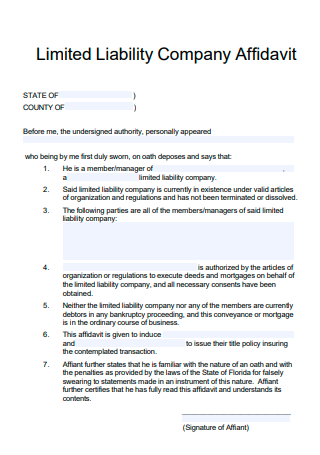
Limited Liability Company Affidavit
download now -
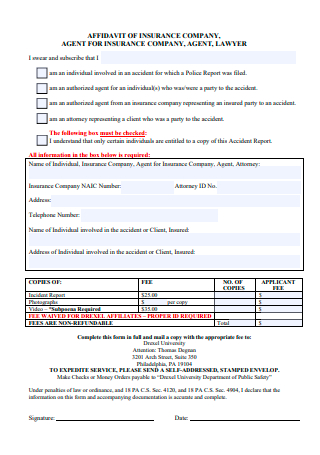
Insurance Company Affidavit
download now -
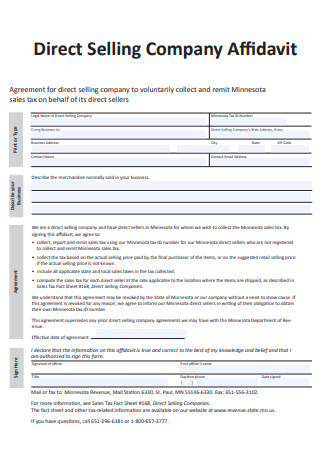
Direct Selling Company Affidavit
download now -
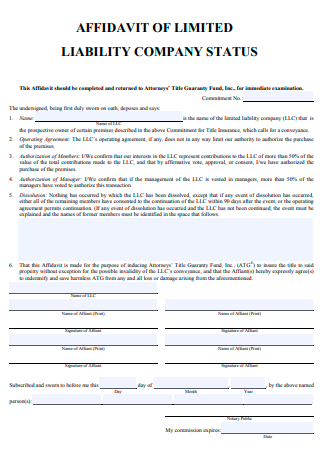
Limited Liability Company Status Affidavit
download now -
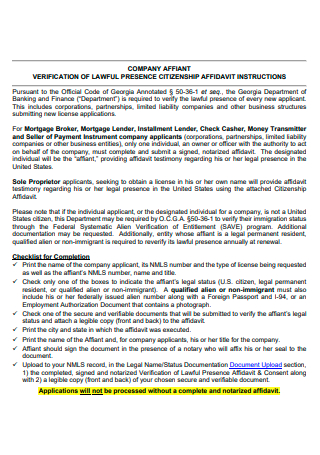
Company Affidavit in PDF
download now -
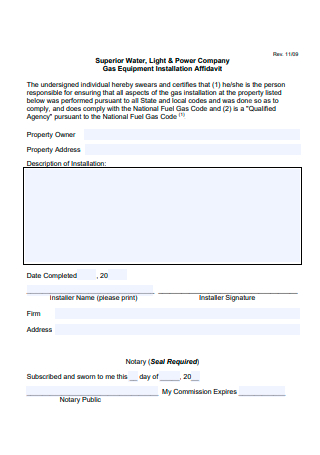
Basic Company Affidavit
download now -

Captive Insurance Company Biographical Affidavit
download now -
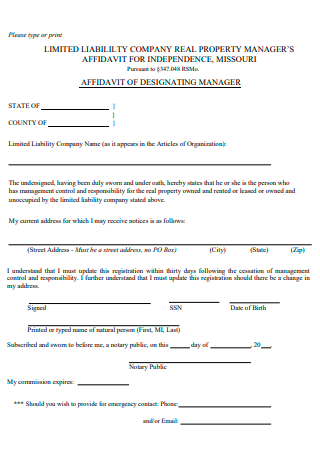
Limited Liability Company Real Property Mamagers Affidavit
download now -
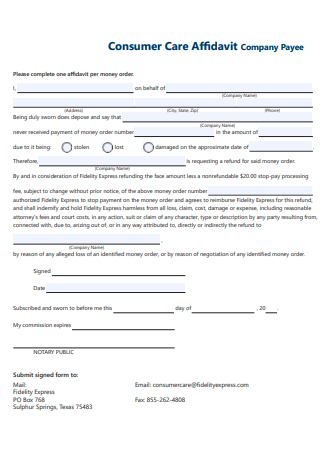
Company Payee Consumer Care Affidavit
download now -
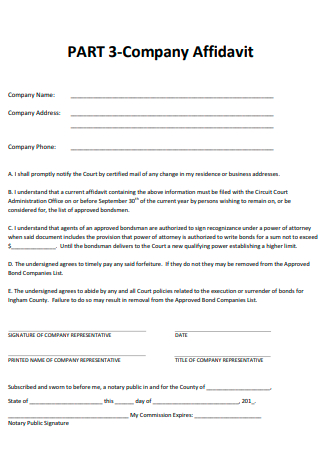
Formal Company Affidavit
download now -
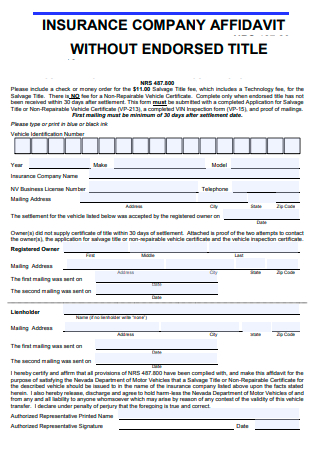
Insurance Company Affidavit Without Endorsed Title
download now -
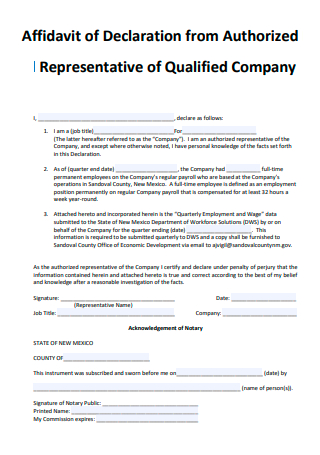
Qualified Company Affidavit
download now -
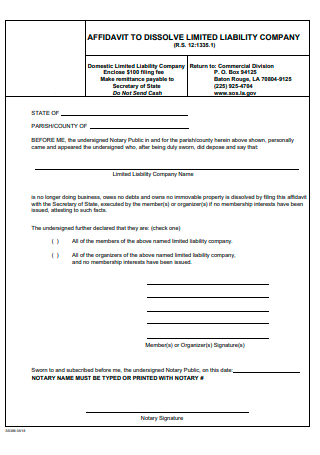
Limited Liability Company Affidavit to Dissolve
download now -
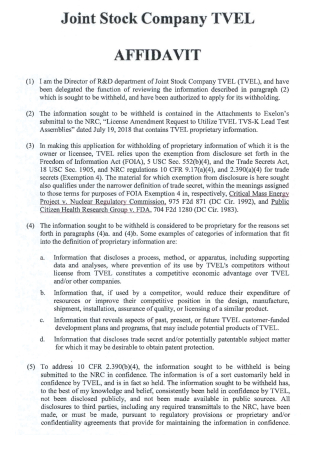
Joint Stock Company Affidavit
download now -
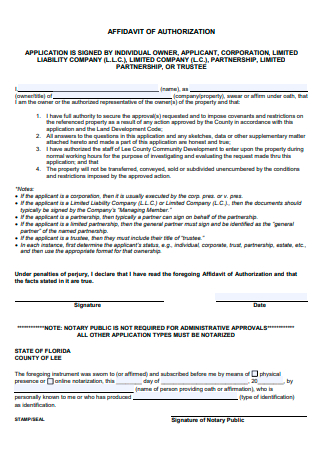
Company Affidavit of Authorization
download now -
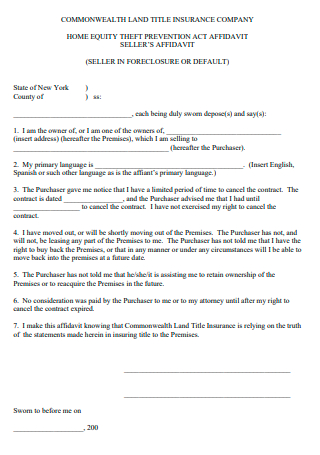
Company Affidavit Example
download now -
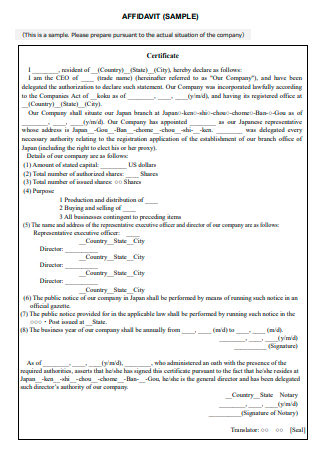
Sample Company Affidavit
download now -
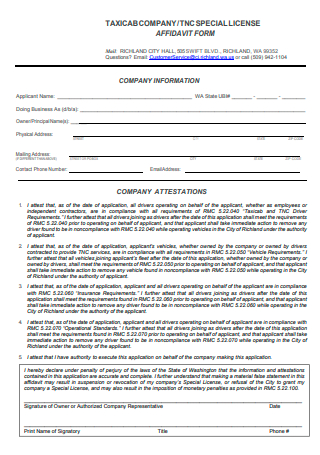
Taxi Cab Company Affidavit
download now -
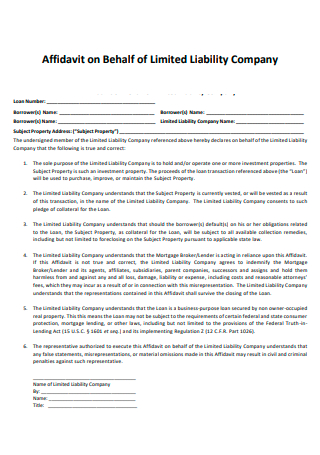
Behalf of Limited Liability Company Affidavit
download now -

Printable Company Affidavit
download now -
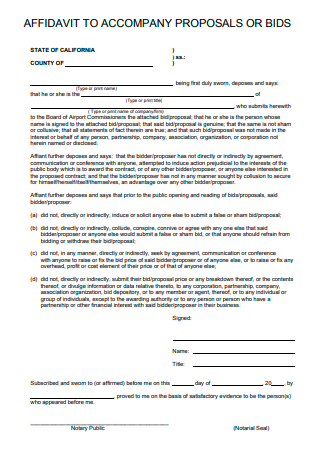
ACCompany Proposal Affidavit
download now
What Is a Company Affidavit?
A company affidavit meaning is close to the generic definition. An Affidavit is a written sworn statement. When you use an affidavit, you declare that the information contained in the document is genuine and exact to the best of your knowledge. An affidavit, like swearing an oath in court, is only valid if it is made voluntarily and without coercion. If you are new to the process of creating the document, then you can refer to the company affidavit sample made available for your use.
Facts About Affidavits
These documents are designed to produce straightforward legal decisions on a wide range of issues, from heirship and marriage to debt and identity fraud. Affidavits must adhere to a strict procedural code due to their frequent use for a variety of purposes. Affidavits help ensure that legal choices are made in a fair and timely manner, taking into account all relevant facts. Affidavits play an important role in the day-to-day life of a Legal administrative assistant. Regardless if you are pursuing such a role or have been temporarily assigned to make one, this list would serve as additional knowledge.
Common and Business-Centric Affidavit Uses
A corporate affidavit form can have various uses, but the purpose remains in that they are legalized statements that are notarized by a reputable individual. Affidavits can be useful in many different and unique situations. Affidavits are required on many government forms, including but not limited to driver’s license application fields, vehicle registrations, voter registrations, and hidden weapon permits. The following are a few of the more common types of affidavits that are recommended that you familiarize yourself with.
How to Write a Company Affidavit
Preparing a company affidavit may pressure you into perfecting the process, this includes ensuring the wording is factual, the format is understandable, and the overall composition coincides with its intended purpose. Though being meticulous is commendable, you don’t have to stress with the affidavit format as various samples are made available for you to check and use as an additional reference.
1. Title the Affidavit
The first step you will need to do is to place a Title on your affidavit. The title of your affidavit should simply inform the person reading it about the subject of your sworn statement. This is where you will need to Include your name as well as the topic of the affidavit. If you are submitting your affidavit to a court, you’ll also need to include the case caption in this section. Your case caption can be found on any court documents related to your case. The designation of the court, county, and state, the names of all involved parties, and your case number will all be included.
2. Create a Statement of Identity
The following section of your affidavit is referred to as a statement of identity. This is where you will include your personal information, such as your name, age, occupation, place of Residence, and any other relevant information to the situation or case. This part is intended to introduce yourself in relation to the information you are about to present. You do not need to submit your life story, but you must include any material relevant to the allegations you are making. For instance, if you were writing an affidavit giving an alibi for someone suspected of a crime, your declaration of identity would need to mention your link to that person.
3. Write a Declaration of Truth
This section of your affidavit is where you swear that you have told the truth to the best of your ability. A statement of truth is the closest approximation of swearing under oath in a courtroom. Your truth statement must be in the first person, and you must identify yourself in it. Keep it brief and to the point. You are simply acknowledging in your affidavit that you agree not to lie.
4. Elaborate on the Facts
This will most likely be the longest section of the affidavit. There is no set length for this section; all that matters is that it contains all of the necessary information. Avoid including any personal views or opinions in your affidavit. The facts must be Objective, precise, and succinct. Make a list of everything you recall about the scenario and then decide which facts are pertinent to your affidavit. Then, organize them in a logical order. One of the most effective ways to organize facts about a situation is in chronological sequence.
5. End With a Closing Statement
After you have gone over all of the facts, you will conclude with another declaration of truth. All you need to include is a brief description stating that everything you have stated above is correct to the best of your ability. This part should be direct or straight to the point, don’t linger or use figures of speech. You can change the language slightly, but for the most part, it should be identical to your statement of truth at the opening of the affidavit.
6. Sign and Notarize
The final step in completing your declaration is to sign and notarize it. You can complete the majority of your affidavit before having it certified and witnessed, but you must sign it in the Company of a licensed witness or notary. A witness is important to be present during this step. If you have included exhibits in your affidavit, the notary must also evaluate and sign them. Bring any required paperwork to your meeting with the notary. Otherwise, you will have to redo the entire process which can be time-consuming. This last step is most important especially if it serves to be a company sworn affidavit.
FAQs
Is an affidavit a legal document?
If you require an affidavit, you must need a notary. A notary is a public official who has the authority to certify assertions made by persons in the form of Legal Letters known as affidavits. A notarized document, such as an affidavit, is valid in perpetuity for its contents. The major factor should be the time, location, and date of execution, or if the contents of the affidavit are disputed by new/other evidence, rendering the earlier affidavit null and void.
Who can serve as a witness of an affidavit?
This sort of document is frequently used as evidence in legal actions by courts. A director for oaths, such as a notary, lawyer, or authorized member of the court, must witness and sign an affidavit under oath with you. When you sign this paper under oath, you are declaring that the facts contained are accurate.
Can anyone write an affidavit?
A person who swears an affidavit is referred to as a Deponent or an Affiant. Depending on the affidavit that has to be certified, the person with judicial power is best recommended. Although affidavits are legally considered papers, they may be written by anybody. The affidavit is valid if it is properly signed, notarized, and certified. This implies you don’t need to hire a lawyer to draft an affidavit.
Depending on the company you are working or associated with, there may be a standard company affidavit format that you must follow. Utilize what your higher-ups have prepared to ensure uniformity within your company. Otherwise, if you don’t have one, there are variously available within the article.
